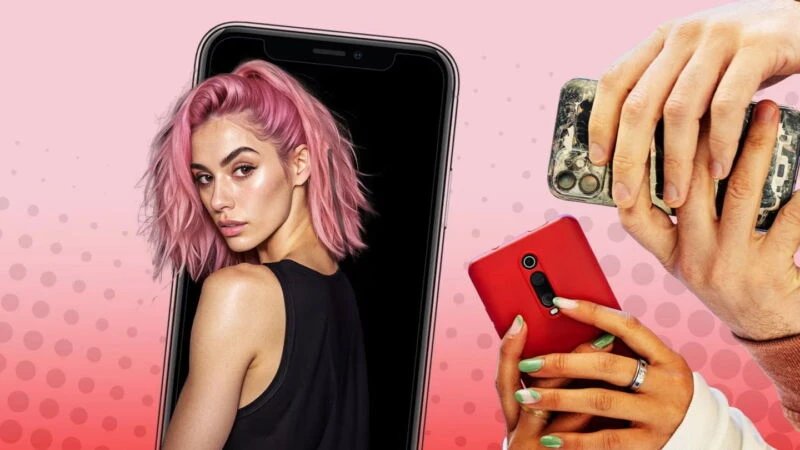AI-created “Virtual Influencers” Are Stealing Business from Humans
As the digital landscape continues to evolve, the rise of hyper-realistic, AI-generated influencers is causing a major shakeup in the marketing and advertising industry. With their ability to engage and influence audiences, these virtual influencers are not only capturing the attention of brands but also posing a significant threat to human influencers.
The Emergence of AI-Generated Influencers
In today’s social media-driven world, virtual influencers like Aitana Lopez have amassed a considerable following and have established themselves as prominent figures in the digital sphere. Despite being entirely fictional, these AI-created personas have successfully attracted the attention of brands seeking effective promotional strategies.
Pink-haired Aitana Lopez, with her 200,000-strong following, has become a sought-after presence on social media, partnering with renowned brands like Olaplex and Victoria’s Secret. Interestingly, her posts, although AI-generated, have garnered significant attention and engagement from users, leading to lucrative brand partnerships.
Disruption in the Influencer economy
The emergence of hyper-realistic AI-generated influencers has brought about a sense of concern and unease among human influencers who fear that their livelihoods are being threatened by digital counterparts. This disruption has sparked debates surrounding the impact of AI technology on the content creator economy, which has grown to a staggering $21 billion industry.
Stakeholders in the influencer industry, particularly human influencers, are expressing apprehension as they witness the encroachment of virtual influencers into the market. The rise of AI-created personas has introduced a new level of competition and raised questions about the sustainability of human influencer income in the face of digital rivals.
The Perspective of AI Creators
The creators behind hyper-realistic AI-generated influencers present a different outlook, emphasizing their intent to disrupt an overinflated market that has seen exorbitant rates charged by human influencers. Diana Núñez, co-founder of The Clueless agency, sheds light on the motivation behind the creation of Aitana Lopez, highlighting the agency’s response to the rapidly escalating fees demanded by human influencers.
Núñez’s acknowledgment of unintentionally creating a disruptive force in the influencer landscape reflects the unforeseen impact of AI-generated influencers. While acknowledging the unintended consequences, the creators perceive their virtual influencers as a necessary disruption aimed at challenging the prevailing dynamics of the influencer economy.
The Impact on Brand Partnerships
Luxury brands, in particular, have not shied away from forming strategic partnerships with virtual influencers, forging alliances that have garnered significant attention. High-profile collaborations such as Kim Kardashian’s KKW Beauty with Noonoouri and Louis Vuitton with Ayayi illustrate the willingness of established brands to engage with AI-generated influencers for promotional endeavors.
An insightful analysis of an H&M advert featuring virtual influencer Kuki demonstrates the tangible impact of virtual influencers on brand outreach and engagement. The data revealed that the advert reached 11 times more people and resulted in a 91 percent decrease in the cost per person remembering the advert, compared to traditional advertising methods.
The Future of Influencer Marketing
The advent of AI-created virtual influencers represents a significant leap forward in the realm of influencer marketing, signaling a transformative shift in how brands engage with their target audience. As virtual influencers continue to gain prominence, it is evident that they are reshaping the dynamics of influencer partnerships and challenging the traditional paradigms of brand promotion.
The evolving landscape of influencer marketing necessitates a reevaluation of strategies to accommodate the presence of virtual influencers. Brands and marketers must adapt to the changing dynamics and explore innovative approaches to leverage the potential of AI-generated personalities while maintaining an equilibrium between human and virtual influencer collaborations.
Embracing Change in the Digital Sphere
While the ascent of virtual influencers may initially raise concerns and uncertainties within the influencer community, it also presents an opportunity for adaptation and innovation. Embracing the transformative impact of AI-generated personalities can lead to the exploration of new avenues for brand promotion, paving the way for collaborative efforts that integrate both human and virtual influencers.
The coexistence of human and AI-generated influencers heralds an era of unprecedented creativity and adaptability in the influencer economy, where the amalgamation of human authenticity and AI-driven engagement can propel marketing strategies to new heights. By embracing change and harnessing the potential of virtual influencers, brands can navigate the evolving digital landscape with agility and resilience.
Source: arstechnica








No Comments